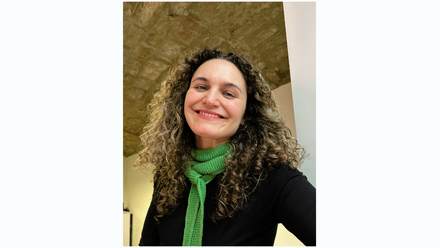Learning the ropes
Hollie Parsons reviews ITI’s Setting Up as a Freelance Translator course, and explains how it gave her the confidence to call herself a translator.
‘What do you do for work?’ That question was one that I was too afraid to answer before the ITI SUFT course.
When I received the email from the University of Birmingham that I had successfully passed my MA in Translation Studies, I was elated; but once the congratulations had stopped ringing in my ears, I felt a little sense of panic. This new career pathway of mine: how was I meant to actually follow it? I remembered that this course had been recommended by one of my university tutors, so after reading the glowing reviews, I signed myself up.
Everyone in exactly the same boat
I had to wait a few weeks before the start date, and I was a little nervous. Although the course is about ‘setting up’ as a freelance translator, I started to worry that, somehow, I would know less than everybody else. Of course, I needn’t have worried at all; it was clear from the beginning that I had just stumbled across a whole new peer group in exactly the same boat as me. From the first session with Hayley Carter-Smith, ‘Getting started is easier than you think’, the excitement of the opportunity to pursue this new adventure started to ignite again, as I was gaining the necessary tools and knowledge.
I think we all felt that, although on paper we were qualified translators, in reality we were inexperienced in the ‘real world’ of the industry. Talks like Hayley’s reiterated that everybody feels the same way when starting out, and that there are so many things you can do to shake it off.
For example, volunteer translating can be a great way to get some projects under your belt and do something good for communities you want to help! It seems so obvious, but it just hadn’t really crossed my mind before we discussed it. Similar reminders of all these important things that seem simple but that can make a big difference came up a lot: such as setting up an ergonomic workspace in your house so that your freelance career doesn’t lead to excruciating back pain; or linking up with fellow translators on networks like LinkedIn or at in-person events so that freelancing doesn’t have to mean going it alone.
Getting comfortable with this new industry
Each talk I attended online left me feeling more and more comfortable and made me start to feel I was really part of the industry. In Fiona Gray’s module on marketing, we talked about how, as newcomers to the freelance translation industry, a lot of us felt we were ‘faking it till we make it’. With exercises like the strengths, weaknesses, threats and opportunities (SWOT) analysis, we were able to acknowledge our weaknesses while also appreciating our strengths and the reasons we were where we were, as well as recognising how we could develop our talents further.
I had never done this kind of self-reflection before, and I was pleasantly surprised at just how helpful it was to draw up a roadmap for reaching my career goals. When you take the time to do this (with the help of some very helpful and experienced tutors!), you realise that nothing is out of reach, and you feel on track to achieve your aspirations.
For many of us, a huge part of feeling like the real deal was also our branding. It’s quite daunting to know where to start designing a website, a logo, and a colour scheme which is going to represent you and your business. Getting the chance to play around with some ideas and then receiving invaluable and personalised feedback from the SUFT tutors was amazing – their experience and opinions helped me perfect the logo and style that I wanted to represent my business, and now when I look at my website, I feel happy and proud of how it looks rather than slightly sheepish!
To be honest, I could write an entire magazine on what the SUFT course taught me, but to keep it to just one article, I would advise anybody considering signing up, or feeling a little overwhelmed by what’s involved in pursuing their dream as a freelance translator, to go for it. What you invest in money and time you will get back tenfold in skills and knowledge of the industry, as well as self-confidence – oh, and a group of fantastic fellow translators that you can stay connected to for years to come.






